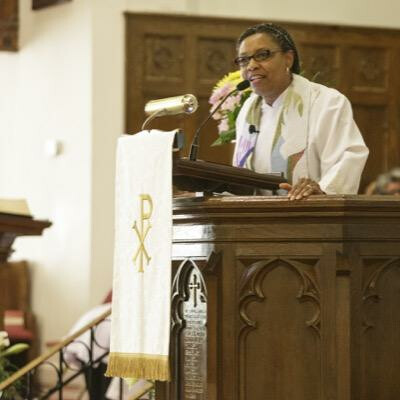Fifty years after Martin Luther King Jr.'s assassination, where should the black church go from here?
By Rev. Dr. Ianther Mills
an excerpt from the Washington Post
On the one hand, the black church appears to be lagging behind movements like #BlackLivesMatter as either late adopters or reluctant risk takers who opt out completely. That reluctance seems to be grounded in the notion that the church cannot participate in a movement that does not have it at the center. On the other hand, when one considers the great work of Rev. Dr. William Barber [in North Carolina], the architect of the Forward Together Moral Movement, we see the black church at the forefront of activism and advocacy for human rights.

I believe the black church needs to reestablish itself as a change maker of significance that is at the table on matters of importance, especially to its constituency. In the case of movements like #BlackLivesMatter, the black church needs to think outside the box. Not long ago, [the predominantly white evangelical campus group] InterVarsity Christian Fellowship released a clarifying statement on their decision to be co-belligerents with #BlackLivesMatter, a movement with which they admit they sometimes disagree, but they still believe it is important to affirm that God created their black brothers and sisters. Co-belligerence is the activity of Christians working with non-Christians for a common political, economic or cultural cause. It is to be partners in the fight while maintaining our ultimate alliance to God. That is where I believe the black church needs to be willing to go to confront the challenges of today.
The beloved community is not only possible, it is inevitable if we as Christians truly embrace who we are and seek to live as persons who are made in the image of God and sent into the world as resurrection people defeating death, despair and degradation with the love of God in Christ Jesus.
Redemption is possible for anyone. Today, we have to see the beloved community beyond the lens of black and white. The beloved community is not only possible, it is inevitable if we as Christians truly embrace who we are and seek to live as persons who are made in the image of God and sent into the world as resurrection people defeating death, despair
We can turn to the work of Bishop Desmond Tutu for understanding.
In his book No Future Without Forgiveness, Bishop Tutu shares the fine line that had to be navigated when he chaired his country’s Truth and Reconciliation Commission. In his words, the commission worked on the basis that “there was a need for understanding but not for vengeance, a need for reparation but not for retaliation, a need for Ubuntu (a Zulu word meaning the essence of what makes one human) but not for victimization.”
For Christians, “ubuntu” has special meaning because it is the crucified and risen Christ dwelling within each of us that makes us human in a special way. We are new creations in Christ and daily we carry Christ into the world, to our friends, neighbors and everyone we meet. “True reconciliation” requires that we embrace
